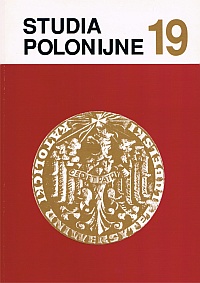The Bulgarian Episode of the Students from Dorpat
Main Article Content
Abstract
After the liberation from Turkish captivity (1878) Bulgaria suffered a severe shortage of specialists in many spheres of life. In the medical profession (doctors, hospital assistants, pharmacists, and midwives) the Poles were particularly numerous. In the first quarter of the 19th century after Bulgaria had shaken off the Ottoman annexation every second vet doctor in this country was Polish, and that even then when Bulgarian vets educated abroad started work.
Among the Polish vets there were at least five graduates from the Institute of Veterinary Medicine in Dorpat (today Tartu in Estonia). The most prominent among them was Dr. Fortunat Chełchowski (1854-1933), who after graduation (in 1879) was employed at the university as an assistant. At that time the results of his research were regularly published in learned papers at home and abroad.
In 1883 he signed a contract with the Bulgarian government. In Bulgaria he was quickly promoted up to the post of the head of civil veterinary medicine, and then in the army, the medicine which he organized almost from the basis. He did great services for the working out of the Bulgarian veterinarian legislature and the organization of occupational education. Simultaneously he worked out many handbooks and publications which made the foundation of Bulgarian veterinarian literature, thus creating the bases of veterinarian vocabulary in this language.
During his sojourn in Bulgaria (until 1889) he started experiments with artificial insemination of mares. He was the first to have created the method of reproduction of farm animals, and contributed to the development of research on glanders. Struggling for a proper rank for veterinary medicine in Bulgaria, he often came into conflict. The Bulgarian government, however, accepted his argument and conferred on him the then highest state decoration. His later years he spent mainly in Lublin.

